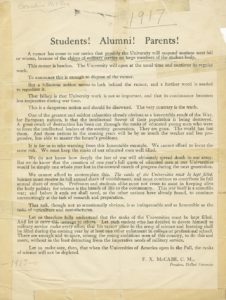
Pre-O’Malley Presidential Files
DePaul University Archives
On April 6, 1917, Congress voted to declare war on Germany following attacks on American ships and publication of documents suggesting German collusion with Mexico. DePaul’s President McCabe released this impassioned statement shortly thereafter to affirm that the university would remain open during wartime in order to continue producing an educated citizenry.
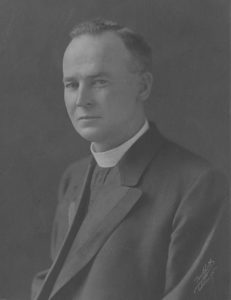
Presidential Biographical Files
DePaul University Archives
The Rev. Francis X. McCabe, C.M., was DePaul’s third President, serving 1910-1920 during a period of growth in facilities, enrollment, and academic offerings. Fr. McCabe’s public profile as a champion of the growing university made him a popular figure. Several students and alumni serving during World War I wrote letters from the European front for Fr. McCabe to share with the DePaul community.
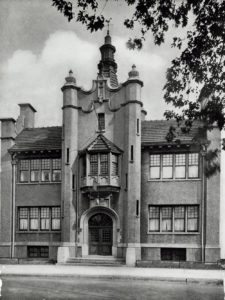
DePaul University Buildings Photographs Collection
DePaul University Archives
In the fall of 1918, the Lyceum became home to the DePaul University unit of the Student Army Training Corps (SATC). DePaul joined 156 colleges in the military program, merging wartime trade classes with martial drills. SATC enlistees ate in the Lyceum basement, and some lived in the building as a barracks.
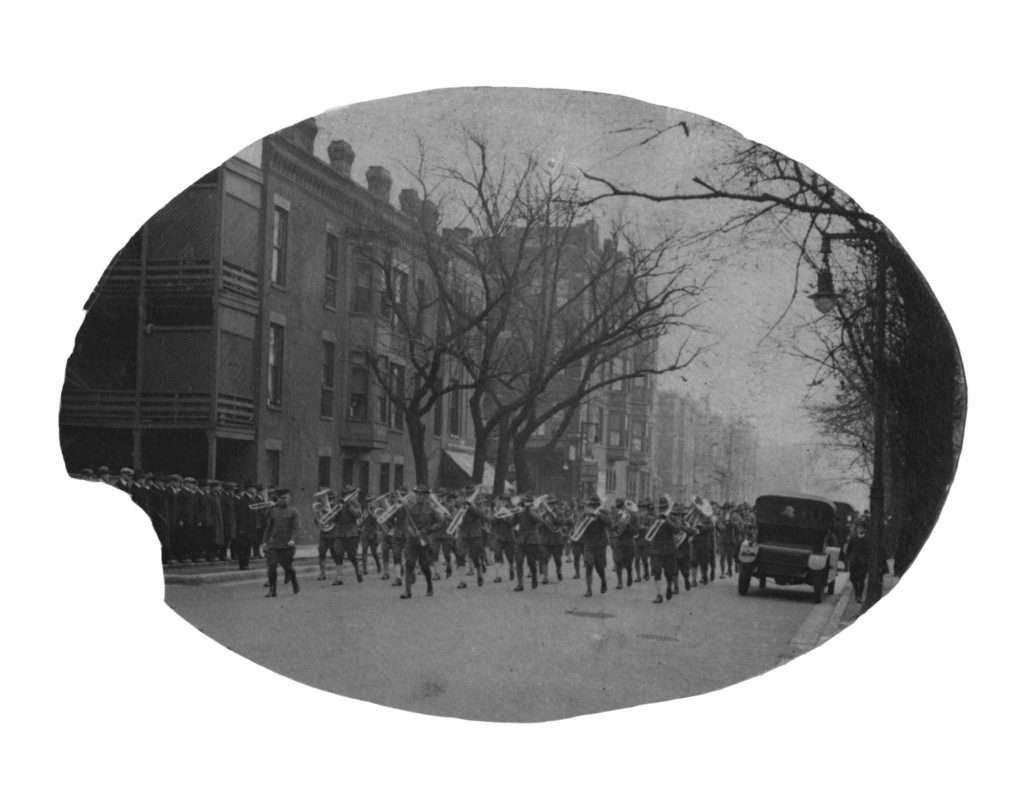
Pre-O’Malley Presidential Files
DePaul University Archives
DePaul’s athletic field, site of the current Lincoln Park Student Center, served as a parade ground. Here the SATC is pictured marching through a Lincoln Park street.
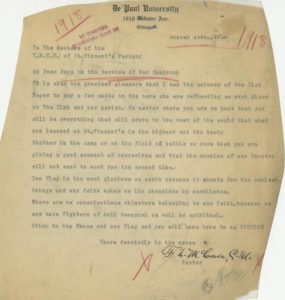
Pre-O’Malley Presidential Files
Fr. McCabe, as DePaul’s president and pastor of St. Vincent’s Church, was a recognizable figure in the support of war preparations within the Lincoln Park community. He spoke at rallies on DePaul’s athletic field and supported the St. Vincent’s chapter of the Young Men’s Catholic Club (YMCC) in their efforts to stay in touch with servicemen. His 1918 letter reflects a patriotism infused with fervent religious faith: “Stick to the Cross and our Flag and you will come home to us VICTORS.”
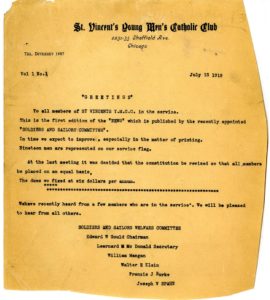
DePaul University Publications
DePaul University Archives
In addition to planting gardens and buying war bonds, civilians supported soldiers abroad by sending them news from home. The Lyceum Weekly News was a regular publication produced by the St. Vincent’s YMCC chapter and sent to community members in military service. Messages and updates published in the Lyceum Weekly News showed soldiers—far from home, family, and friends—that they were not forgotten back in Lincoln Park.
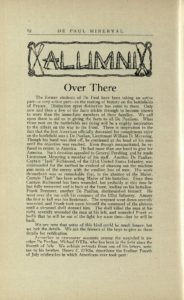
DePaul University Publications
DePaul University Archives
The Minerval, issued bi-monthly during the academic year, was a student publication that combined DePaul Academy and University essays, social reports, sports coverage, and alumni updates. During the war, military themes infused many of The Minerval’s features. A “Roll of Honor” tracked DePaulian servicemen’s status, and the publication featured letters written to DePaul staff from men at the front.

